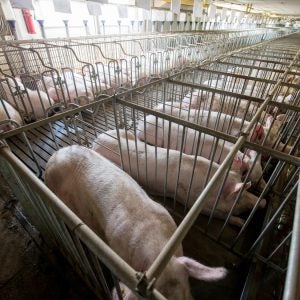
A number of governments around the world, including in Australia, New Zealand, and the European Union, are improving the welfare of farm animals by restricting the use of extreme confinement systems, including barren battery cages for egg-laying hens and sow stalls/gestation crates for breeding pigs; a number of U.S. states have taken similar steps.
Further, corporations around the world are mandating that their suppliers move to higher-welfare housing systems, including a phase-out of cage and crate confinement.
Moving abroad
As animal welfare standards are strengthened in these more affluent nations, there may be a risk that objectionable animal production practices will shift to other parts of the world with weaker regulations. The majority of growth in farm animal populations—along with factory farming practices—is already taking place in developing and emerging economies.
Contributions—of public tax money—to international finance institutions (such as the World Bank Group) and government-backed export credit agencies in countries that have phased out the life-long confinement of animals in barren battery cages and sow stalls are being used to support the same extreme confinement systems in developing and emerging economies.
Consumers in Asia, Latin America, Africa, and Eastern/Central Europe care about animals too. Responsible investments in agriculture should respect their values.
Heading off trouble
HSI is working with international finance institutions, governments (particularly in the EU, which has made noteworthy progress in the area of farm animal welfare over the past decade) and international agricultural development organizations to stop the financing of massive agribusiness companies employing extreme confinement systems in new locations.
By supporting factory farms, these entities inadvertently contribute to the unnecessary suffering of millions of animals. They also disadvantage farmers more concerned with animal welfare (both from developed and developing countries) in local, regional, and global markets for eggs, meat, and milk.
Together with other animal protection organizations, we are promoting the implementation of binding minimum animal housing criteria which should be complied with before any investment capital is granted.
Learn more and take action
- Speak out for better treatment for hens.
- Donate to help us improve life for farm and other animals.
- Read more about the problems with animal welfare in international finance institutions.
- Learn more about plant-based eating.
- Join us to receive news and action alerts about helping animals.
